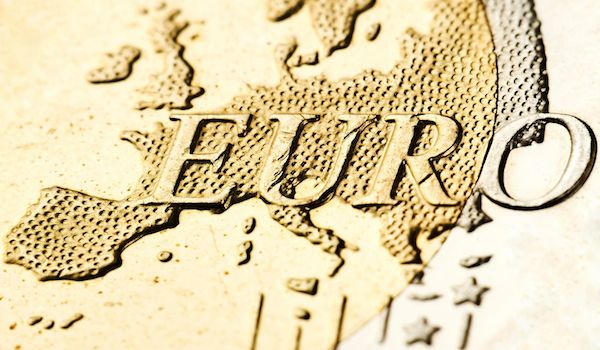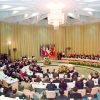
I have spent more than ten years studying the evolution of the European Monetary Union (yes, even my Master dissertation at the University of Manchester written in 2004 was on the single currency). During all this time I have had many moments where I was lost in my thoughts, staring out of the window, pondering: “if the Euro were a person, how would it look like?” This is the outcome of my twisted thoughts. Get ready for some black humour.
The first thing to say is that the Euro would be an orphan child because it does not have a state to protect it. It was created from the “inseparable” marriage between France and Germany, but at its birth they decided to “depoliticise” it, they put it on a tiny boat and pushed it downstream the Rubicon River without ever attempting to cross it. Had they crossed it with the child safe in their hands, we would have a political union by now.
Thus, the Euro is an orphan child that was born in 1999, so it is 16 years old. His first teenager years (as it so happens) were problematic. He was a happy child until he was eleven (international investors loved his depoliticised manners), but between 2010 and 2012 he suffered an existential crisis which almost killed him. He was lucky that in July 2012 his uncle, Mario Draghi, told everyone that, despite his depression, he would survive, and so he did – for now.
There is no question that the Euro’s brain is German. Hence he is extremely frugal and rational. He knows (and so does the ECB in Frankfurt) that to survive he needs to go back, cross the Rubicon and develop into a political union (to finally reach maturity), but he is not very sure how to do it. This is due to the fact that he has a French soul (you know liberté, égalité, fraternité and all that talk…) which is somehow gone nowhere….and the Euro is still trying to find it.
The absence of France is worrying, but the other big complication is that the Euro has its liver out of its body. The City of London is the place where the blood of the system (money) is treated, cleared and redistributed. Unfortunately this vital organ, which is attached to the body by wire, hangs in a bag on a stick which the Euro has to carry wherever he goes –the biggest danger though is that it is constantly threatening to fall loose.
The heart of the Euro is Belgium, more concretely Brussels. It is a heart with a by-pass (Schuman is permanently under construction), and on top of this the Euro is constantly on the brink of suffering a heart attack (the long negotiations of the Eurogroup on the possibility of Grexit till the early hours of the morning are not the best treatment for an ailing heart).
But the structural flaws do not stop there. It happens that the Euro has only one arm: Ireland. It is a small arm but it is extremely tough so it is quite useful. The problem is that the other arm, which is Poland, although hardworking, is technically not part of the body either. It is a prosthesis, with the setback that the most up-to-date model (Eurozone membership) – which would finally allow the Euro to have two effective arms and thus be much stronger – has been ordered years ago but the building and delivery is experiencing serious delays.
Luckily the Euro has two legs, and they are quite strong and big: Spain and Italy. But even here there is a dysfunction. Both are so heavy that they are rigid (look at their labour markets) and slow (they are aging and clientelism is still widespread so they are lacking dynamism). Nonetheless, they still have potential. If the Euro changes its diet, and starts to train harder, it can make them more agile and speedy. Lately there has been some progress.
At this point you must be asking, what about Greece? What does Hellas represent? Indeed, it is a tricky country to add to the body. The Balkans are somehow disconnected and as we all know, Greece is a special case in the Eurozone. But precisely because of that, it deserves the role of the football. Why? Because some Europeans can live without football, but others, like myself, can’t. And in any case, Europe would not be Europe, as we know it, without football.
So to summarise, the Euro is an orphan teenager that just went through an existential crisis, and that might enter a new one if he loses his football. On top of these troubles, his mind knows what he needs to do to survive, but his soul is missing and his liver is hanging on a stick outside his body. He has an arm that is a prosthesis and two legs that are heavy and rigid. You would have thought his future is grim and that he would spend most of his time in bed wanting to die. The fascinating thing, however, is that it is still alive and kicking (the football!). In other words, the Euro has a very odd anatomy… eppur si muove.


